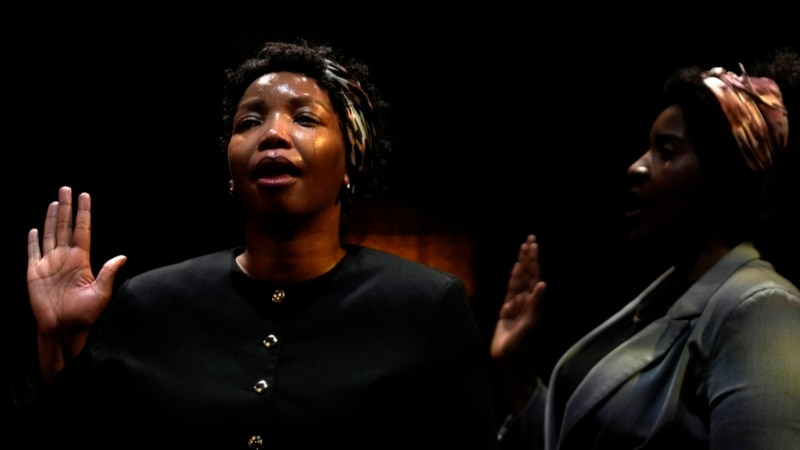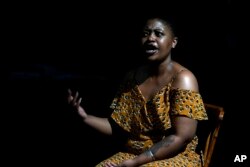This website uses cookies so that we can provide you with the best user experience possible. Cookie information is stored in your browser and performs functions such as recognising you when you return to our website and helping our team to understand which sections of the website you find most interesting and useful.

A new play about anti-apartheid icon Winnie Madikizela-Mandela seeks to highlight the struggles of Black women in South Africa who had to wait years for their husbands' return from exile, prison or faraway work during decades of white minority rule.
The play about the late former wife of Nelson Mandela, South Africa's first Black president, is adapted from the novel The Cry of Winnie Mandela by Njabulo Ndebele. It explores themes of loneliness, infidelity and betrayal.
At the height of apartheid, Madikizela-Mandela was one of the most recognizable faces of South Africa's liberation struggle while her husband and other freedom fighters spent decades in prison.
That meant constant harassment by police. At one point, she was banished from her home in Soweto on the outskirts of Johannesburg and forcefully relocated to Brandfort, a small rural town she had never visited nearly 350 kilometers away.
Even after she walked hand-in-hand with her newly freed husband in 1990 and raised her clenched fist, post-apartheid South Africa was tumultuous for her.
Madikizela-Mandela, who died in 2018 aged 81, was accused of kidnapping and murdering people she allegedly suspected of being police informants under apartheid. She also faced allegations of being unfaithful to Mandela during his 27 years in prison.
Those controversies ultimately led to her divorce from Mandela, while their African National Congress political party distanced itself from her. The isolation and humiliation inspired Ndebele to write about Madikizela-Mandela for South Africa's post-apartheid generations.
"How can they implicate Winnie in such horrendous events? She is the face of our struggle," Ndebele's character, played by South African actor Les Nkosi, wonders as he describes his thoughts upon hearing the news of the ANC distancing itself. "The announcement invokes in me a moral anguish from which I'm unable to escape. Is she a savior or a betrayer to us?"
A key scene addresses Madikizela-Mandela's appearance before the Truth and Reconciliation Commission, a body formed to investigate human rights abuses during apartheid. She denied murder and kidnapping allegations and declined a request to apologize to families of alleged victims.
"I will not be the instrument that validates the politics of reconciliation, because the politics of reconciliation demands my annihilation. All of you have to reconcile not with me, but the meaning of me. The meaning of me is the constant search for the right thing to do," she says in a fictional monologue in the novel.
The play also reflects how the Mandelas' divorce proceedings played out in public, with intimidate details of their marriage and rumors of her extramarital affair.
For the play's director, Momo Matsunyane, it was important to reflect the role of Black women in the struggle against apartheid who also had to run their households and raise children, often in their husbands' long absence.
"It's also where we are seeing Black women be open, vulnerable, sexual and proud of it, not shying away. I think apartheid managed to dismantle the Black family home in a very terrible way. How can you raise other Black men and women when our household is not complete?" Matsunyane said.
In the play, one Black woman tells a group of friends how her husband ended their marriage when he returned home after 14 years abroad studying to be a doctor and found she had given birth to a child who was now 4 years old.
Another woman tells the same group — who call themselves "Ibandla Labafazi Abalindileyo" (Organization of Women in Waiting in the isiXhosa language) — that her husband returned from many years in prison but left her to start a new family with a white woman.
Madikizela-Mandela, played by Thembisa Mdoda, gets to answer questions about her life and the decisions she made during an encounter with the women.
The play, which also draws on the protest music of that period, opened at The Market Theatre in Johannesburg and will run until March 15.



 Africana55 Radio
Africana55 Radio 

